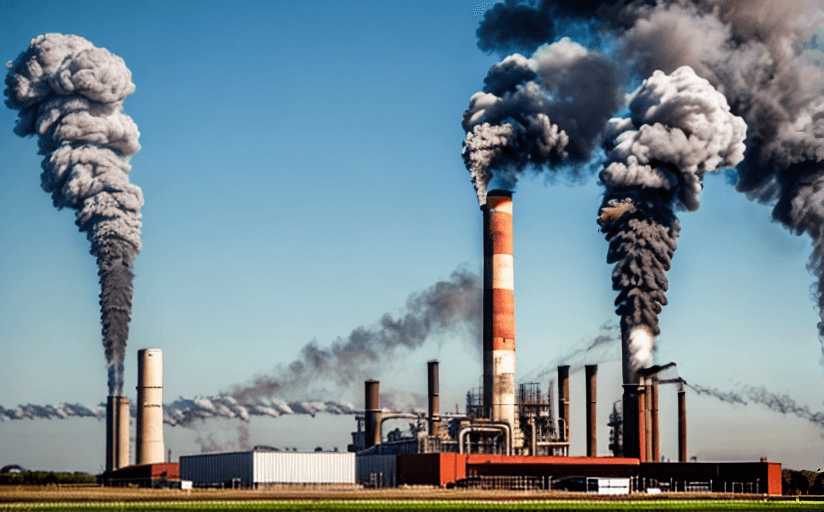Exploring How Industrialization Has Impacted Climate Change
Industrialization has had a tremendous impact on climate change, ranging from both positive and negative effects. The scientific evidence that supports the idea that industrialization has contributed to global warming is clear, and governments and industry have taken steps to reduce emissions and limit the effects of climate change. In this article, we will explore how industrialization has impacted climate change, discuss the scientific evidence that supports the idea that industrialization has contributed to global warming, and consider possible solutions that could be implemented to further reduce the impact of industrialization on the environment.
Positive and Negative Effects of Industrialization on Climate Change
Industrialization has had both positive and negative effects on climate change. On the positive side, industrialization has allowed for the development of renewable energy sources such as wind, solar, and geothermal power. This has helped reduce the emission of greenhouse gases such as carbon dioxide, which are one of the primary causes of global warming. Additionally, industrialization has enabled the development of efficient transportation systems, which has helped reduce air pollution.
On the negative side, industrialization has caused an increase in the release of greenhouse gases. This is due to the burning of fossil fuels for energy production and other industrial activities. Additionally, industrialization has caused the destruction of natural habitats, which has reduced the amount of carbon dioxide absorbed by plants and trees. This has further contributed to the problem of global warming.
Scientific Evidence of Industrialization’s Impact on Climate Change
The scientific evidence of industrialization’s impact on climate change is clear. Studies have shown that the burning of fossil fuels has caused the release of large amounts of greenhouse gases, which trap heat in the atmosphere and cause global warming. Additionally, industrialization has caused the destruction of natural habitats, which has reduced the amount of carbon dioxide absorbed by plants and trees. This has further contributed to the problem of global warming.
Steps Taken by Governments and Industry to Reduce Emissions and Limit Effects of Climate Change
Governments and industry have taken steps to reduce emissions and limit the effects of climate change. Governments have implemented policies and regulations to reduce emissions from power plants, factories, and vehicles. Additionally, there has been an increased focus on renewable energy sources such as wind, solar, and geothermal power. Industry has also implemented initiatives to reduce their emissions, such as investing in energy efficiency and investing in renewable energy sources.
Possible Solutions to Further Reduce Industrialization’s Impact on Environment
There are a number of possible solutions that could be implemented to further reduce the impact of industrialization on the environment. One solution is to increase investment in renewable energy sources such as wind, solar, and geothermal power. Additionally, governments could implement policies and regulations to reduce emissions from power plants, factories, and vehicles. Finally, industry could invest in energy efficiency and invest in renewable energy sources.
In conclusion, industrialization has had a tremendous impact on climate change, ranging from both positive and negative effects. The scientific evidence of industrialization’s impact on climate change is clear, and governments and industry have taken steps to reduce emissions and limit the effects of climate change. Additionally, there are a number of possible solutions that could be implemented to further reduce the impact of industrialization on the environment.



















Comments
Leave a Comment